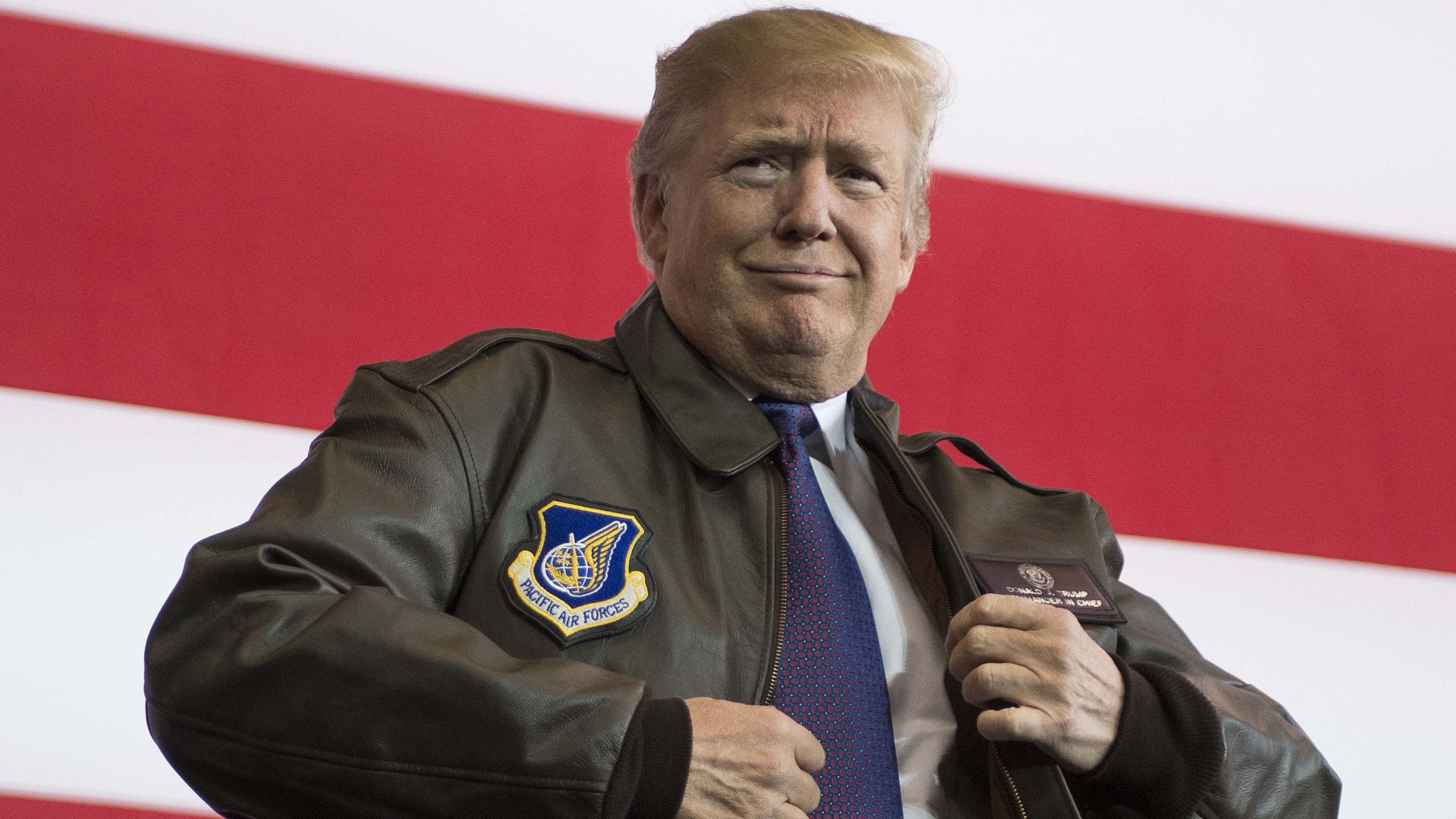Can a US president decide to take America to war?
Congress to vote on curbing Donald Trump’s power to launch military action in Iran

A free daily email with the biggest news stories of the day – and the best features from TheWeek.com
You are now subscribed
Your newsletter sign-up was successful
US lawmakers are voting today on a resolution to force Donald Trump to halt any military action against Iran, following Tehran’s retaliation for the assassination of military leader Qasem Soleimani.
In a televised address from the White House on Wednesday, the US president claimed that Iran appeared to be “standing down” after launching missile strikes on two US military bases in Iraq hours earlier.
But Iranian military leaders have warned that a “harsher revenge” against the US may follow if tensions continue to escalate. Although Trump appears to have ruled out a military response to the air strikes, the US leader is imposing further economic sanctions on Iran.
The Week
Escape your echo chamber. Get the facts behind the news, plus analysis from multiple perspectives.

Sign up for The Week's Free Newsletters
From our morning news briefing to a weekly Good News Newsletter, get the best of The Week delivered directly to your inbox.
From our morning news briefing to a weekly Good News Newsletter, get the best of The Week delivered directly to your inbox.
As the stand-off continues, debate is growing over the extend of Trump’s war powers in his role as commander in chief of the US forces - and whether they could be curbed.
Could Trump declare war?
According to the US Constitution, only Congress can declare war, so Trump would need congressional approval for sustained military conflict.
The 1973 War Powers Act, passed in the aftermath of the Vietnam War, also puts limits on the president’s ability to take the country to war.
A free daily email with the biggest news stories of the day – and the best features from TheWeek.com
Under the terms of the Act, Congress should be notified within 48 hours of sending troops into conflict. If troops are deployed by the president without congressional authorisation, the deployment must end within 60 days unless approval is given in the meantime.
The resolution says the president can only deploy forces without congressional approval if the nation has been attacked. However, like presidents before him, Trump could simply ignore what he is technically allowed to do.
According to History.com, “since the 1970s, every sitting president has either sidestepped some of the law’s provisions or labelled it unconstitutional”.
What constitutes war?
This big question is by no means easy to answer.
As The Washington Post asks: “Is it launching Tomahawk missiles at a Syrian chemical weapons programme, as Trump has done in the past? Is it taking out a senior government official of a hostile country, as Trump did with Iranian commander Qasem Soleimani?”
Many commentators define war as a sustained military conflict, as opposed to a military action that is a means to an immediate end - such as last week’s drone strike.
What can Congress do to contain presidential war power?
Speaker of the House Nancy Pelosi announced yesterday that the House would vote on Thursday to stop Trump taking further military action against Iran without explicit authorisation from Congress.
“Members of Congress have serious, urgent concerns about the administration’s decision to engage in hostilities against Iran and about its lack of strategy moving forward,” said Pelosi in a statement.
Two Republicans have said they will back a Senate version of the House Democrats’ resolution. Senators Mike Lee of Utah and Rand Paul of Kentucky have long been proponents of asserting the authority of Congress over war powers, says The New York Times.
Lee said the message from Trump was “to run along and be good little boys and girls and not debate” the justification for the strike that killed General Soleimani.
“It’s un-American, it’s unconstitutional, and it’s wrong,” Lee added.
But even if the resolution passes in both chambers, Trump could veto it. Overriding the veto would require a two-thirds majority in both the House and Senate, which would be difficult to achieve unless significant number of Republics turned against the president.
And even then, Trump could claim that he has the constitutional right to defy the resolution. The courts have tended to shy away from mediating disputes between Congress and presidents over war powers, which could lead to a stand-off.
Majorities in both chambers over Trump’s support for Saudi Arabian intervention in Yemen were vetoed by the president last year. An override vote in the Senate also failed, with only seven Republicans turning against Trump.
-
 Palantir's growing influence in the British state
Palantir's growing influence in the British stateThe Explainer Despite winning a £240m MoD contract, the tech company’s links to Peter Mandelson and the UK’s over-reliance on US tech have caused widespread concern
-
 Quiz of The Week: 7 – 13 February
Quiz of The Week: 7 – 13 FebruaryQuiz Have you been paying attention to The Week’s news?
-
 Nordic combined: the Winter Olympics sport that bars women
Nordic combined: the Winter Olympics sport that bars womenIn The Spotlight Female athletes excluded from participation in demanding double-discipline events at Milano-Cortina